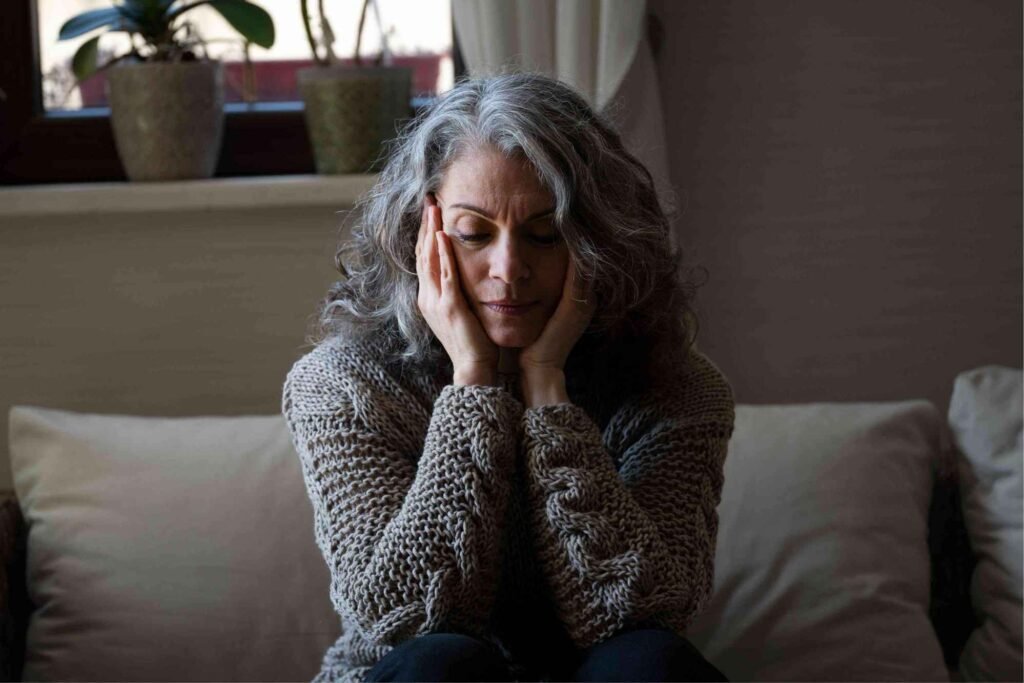Menopause is a significant phase in a woman’s life, marking the end of her reproductive years. This natural biological process typically occurs between the ages of 45 and 55 but can vary widely among individuals. Menopause is often misunderstood, with many misconceptions and myths surrounding it. Understanding menopause is crucial for women to navigate this transition with confidence and ease. It not only impacts physical health but also has profound emotional and psychological effects. This comprehensive guide aims to shed light on what menopause is, the symptoms women experience, and how to manage this transition effectively.
Menopause is defined as the cessation of menstrual periods for 12 consecutive months. It signifies the end of ovarian follicular activity, resulting in decreased production of hormones such as estrogen and progesterone. This hormonal shift is responsible for the various symptoms and changes women experience during menopause. Despite being a natural process, menopause can be a challenging time due to the wide range of symptoms that can affect daily life. Hot flashes, night sweats, mood swings, and sleep disturbances are just a few of the common symptoms. However, understanding these changes and knowing what to expect can help women manage them better.

In addition to physical symptoms, menopause can also bring about emotional and psychological changes. Feelings of sadness, anxiety, and irritability are common during this time. The end of fertility can also be a source of emotional stress for some women. However, with the right support and information, women can navigate these challenges and embrace this new phase of life. This guide will explore the various aspects of menopause, including its stages, symptoms, and management strategies, to provide a comprehensive understanding of this important life transition.
What is Menopause?
Menopause is a natural biological process that signifies the end of a woman’s menstrual cycles. It is diagnosed after a woman has gone 12 months without a menstrual period. Menopause typically occurs in women in their late 40s to early 50s but can happen earlier or later.
Stages of Menopause:
- Perimenopause: This is the transitional period leading up to menopause. It can last several years, during which menstrual cycles become irregular, and symptoms like hot flashes and night sweats may begin.
- Menopause: This stage is confirmed when a woman has gone 12 months without a menstrual period. Hormone levels drop significantly, and menstrual periods cease.
- Postmenopause: This stage follows menopause and lasts for the rest of a woman’s life. Symptoms may continue, but their intensity usually decreases over time.
Causes of Menopause:
- Natural Decline in Reproductive Hormones: As women age, their ovaries produce less estrogen and progesterone, leading to the end of menstrual cycles.
- Surgical Menopause: Removal of the ovaries due to medical conditions like cancer can cause immediate menopause.
- Chemotherapy and Radiation Therapy: These cancer treatments can damage the ovaries and bring about menopause.
- Primary Ovarian Insufficiency: A small percentage of women experience menopause before age 40 due to insufficient ovarian function, often with a genetic or autoimmune cause.

Diagnosis of Menopause:
- Medical History and Symptoms: Doctors diagnose menopause based on a woman’s age, menstrual history, and symptoms.
- Blood Tests: Sometimes, hormone levels such as FSH (Follicle-Stimulating Hormone) and estrogen are tested to confirm menopause.
- Symptoms of Menopause in Women
- Menopause brings about a wide range of symptoms that vary in intensity and duration among women. Understanding these symptoms is essential for managing them effectively.

Menopause Symptoms Common Among Women
Hot Flashes:
- Sudden feelings of heat that spread through the body, often accompanied by sweating and redness.
- Can occur during the day or night (night sweats).
Irregular Periods:
- Periods may become lighter, heavier, more frequent, or less frequent before stopping completely.
Vaginal Dryness:
- Decreased estrogen levels lead to reduced moisture in the vaginal tissues, causing dryness and discomfort during intercourse.
Sleep Disturbances:
- Insomnia and disrupted sleep patterns due to night sweats and other menopausal symptoms.
Mood Changes:
- Increased irritability, anxiety, and depression are common during menopause.

Weight Gain and Slowed Metabolism:
- Changes in hormone levels can lead to weight gain, especially around the abdomen.
Thinning Hair and Dry Skin:
- Hormonal changes can cause hair to become thinner and skin to lose its elasticity and moisture.
Loss of Breast Fullness:
- Breasts may lose their fullness and become more tender.
Memory Problems and Concentration Issues:
- Some women experience difficulties with memory and concentration.
Joint and Muscle Pain:
- Decreased estrogen levels can contribute to joint stiffness and muscle pain.

Reduced Libido:
- Lower levels of estrogen and testosterone can lead to a decreased interest in sexual activity.
Managing Menopausal Symptoms:
Lifestyle Changes:
- Regular exercise, a balanced diet, and maintaining a healthy weight can help manage symptoms.
- Avoiding triggers like hot beverages, spicy foods, and alcohol can reduce hot flashes.
Hormone Replacement Therapy (HRT):
- HRT can be effective in relieving many menopausal symptoms but carries some risks. It should be discussed with a healthcare provider.
Non-Hormonal Medications:
- Certain medications, such as antidepressants, can help manage symptoms like hot flashes and mood changes.
Vaginal Estrogen:
- Low-dose vaginal estrogen can alleviate vaginal dryness and discomfort.

Alternative Therapies:
- Acupuncture, yoga, and herbal supplements may provide symptom relief for some women.
Psychological Support:
- Counseling and support groups can help women cope with the emotional aspects of menopause.
Conclusion
Menopause is a natural and inevitable phase in a woman’s life, marking the end of her reproductive years. While it brings about a range of physical, emotional, and psychological changes, understanding menopause and its symptoms can empower women to manage this transition with confidence. By recognizing the stages of menopause and the variety of symptoms associated with it, women can take proactive steps to alleviate discomfort and improve their quality of life.
The journey through menopause is unique for every woman, and what works for one may not work for another. Therefore, it is crucial to explore different management strategies and seek professional guidance when necessary. Lifestyle modifications, hormone replacement therapy, non-hormonal medications, and alternative therapies all offer potential relief for menopausal symptoms. Additionally, emotional support from loved ones, counseling, and support groups can provide invaluable assistance during this time.
Ultimately, menopause should not be seen as an end but rather as a new beginning. It is an opportunity for women to focus on their health, well-being, and personal growth. With the right knowledge, support, and self-care, women can navigate menopause and embrace this new chapter in their lives with resilience and optimism.
As society continues to better understand and normalize discussions around menopause, women will be better equipped to face this transition. Increased awareness and education can help dispel myths and reduce the stigma associated with menopause, allowing women to approach this stage with a sense of empowerment and dignity. By fostering an environment of support and understanding, we can ensure that women experiencing menopause receive the care and respect they deserve.
In conclusion, menopause is a significant and transformative period in a woman’s life. With the right tools and support, women can navigate this transition effectively and emerge stronger, healthier, and more confident. This comprehensive guide aims to provide a thorough understanding of menopause, its symptoms, and management strategies, helping women to embrace this phase of life with grace and resilience.


